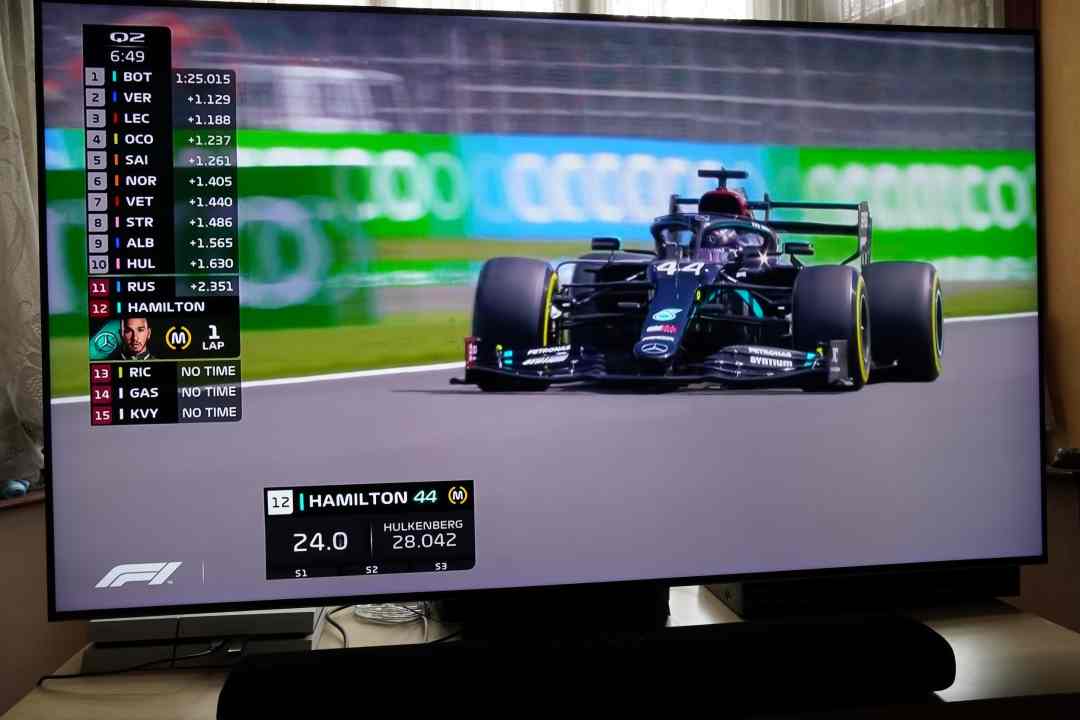
The Razer Opus X gaming headset offers great comfort and quality audio for PC and mobile gamers, with bold colour options that set it apart from rivals. But by only featuring Bluetooth connectivity, console gamers are out of luck.
Pros
- Great audio quality
- Easy-to-use controls
- Comfortable ear cups
- Features ANC
Cons
- Lacks an audio jack
- Lacks support for PS5, Switch and Xbox
- No carrying case and doesn’t fold down
Availability
- UKRRP: £99.99
- USARRP: $99.99
- EuropeRRP: €107.99
- Canadaunavailable
- AustraliaRRP: AU$169.95
Key Features
-
Bluetooth wireless:Completely wireless Bluetooth connection to mobiles and PC.
-
Smart design:All the buttons are on the right side and are easy to use and control.
-
ANC support:Features Active Noise Cancellation Mode and a Quick Attention Mode.
Introduction
The Razer Opus X is the little brother to the Razer Opus headset. Available at a cheaper price and with fewer features, this is a headset for someone who doesn’t need all the bells and whistles.
The headset is simple but sturdy, with simple controls located on the bottom of the right ear cup, with two embedded microphones for ANC (active noise cancellation) and a second pair for voice chat.
Connecting the Razer Opus X to my PC and phone was no problem, but since it’s reliant on Bluetooth, it’s unfortunately not supported by PS5, Xbox or Switch. The latency is also a little too high for competitive gaming, especially when compared to headsets featuring a 2.4Ghz wireless connection. This is best thought of as a PC/mobile headset for casual play.
I’ve spent three weeks listening to music, playing a few games and chatting over the phone with the Razer Opus X. Read on to find out whether its worthy of joining our best gaming headset list.
Design
- Option of three different colours
- Comfortable to wear for long periods of time
- No external microphone
I will admit, the colour options for the Razer Opus X are a little out of my comfort zone. I have them in ‘Quartz,’ which is just a very bright pink, but there are also options to get them in ‘Mercury,’ which is white, and Green, which is obviously a very bright and acidic green.
Getting past the colours, the headset itself is plastic with protein leather and nylon earcups, meaning it’s not batting for the most stylish headset of the year, like the lambskin Beoplay Portal – but at this price, it doesn’t have to.
The more stylish aspects come from the small and unobtrusive buttons on the bottom right ear cup, along with the LED light that indicates they’re turned on, charging or pairing with another device.
Onboard, you’ll find volume buttons, a pairing button and a power button. Tapping the power button will turn ANC on, turn Ambient on and then turn ANC off again, so it’s not too hard to figure out.
Tapping the pairing button can pause/play music, and clicking multiple times can skip a track or go backwards. While it’s a nice idea to have buttons provide multiple functions, I tended to forget they had the ability to skip tracks and ended up just doing it manually.
When ANC is turned on, there is a noticeable difference, with white noise and conversations around me fading into the background. The Ambient mode also makes it easy to switch back into real life, and it was convenient not to keep removing the headset if I needed to hear something happening around me.
The Razer Opus X weighs in at 270g, and I found that I could wear them for several hours without putting uncomfortable pressure on my neck.
However, I will say they were just a little too big for me. Even at the smallest size, the headset would easily fall off my head if I lean forward or backwards. And for anyone who likes to accessorise, the biggest comfort issue I had was related to the earcups eventually pushing my earrings into my head, but that only tended to become an issue after several hours of uninterrupted use. I also had a similar issue with my glasses.
The headset doesn’t come with any form of carrying case, and the headset doesn’t fold down. That left me carefully putting them in a bag and hoping they didn’t get damaged or wearing them around my neck.
Rounding out the design, the last thing on the right earcup is a USB-C port to charge the headset. I was disappointed to see there is no 3.5mm audio jack, unlike the original Opus headset. This means you’ll want to make sure your devices have Bluetooth, otherwise, you won’t get far with the Opus X.
Features
- ANC technology
- Razer Audio app for customising features
- No auto-pause/play options
The Razer Opus X only supports Bluetooth 5.0 for connectivity, making it a headset exclusively for mobiles and PCs – I had no luck connecting it to any of my consoles.
But once connected, the headset had no issues and I never noticed any audio delay, with the headset staying connected even after I left the room.
Razer offers an app for the Opus X, available on iOS and Android, which lets you tweak a few settings. You can activate ANC (which can also be done on the headset itself), toggle Gaming Mode, and change the Equaliser settings, which gives you the choice of turning on Enhanced Bass, Enhanced Clarity, Vocal, Amplified or staying on Default.
My favourite mode is Enhanced Clarity, as I felt it helped keep vocals and instruments clear when listening to music. And despite the name, I also felt it bought on a deeper bass than the other modes. Gaming Mode gave a little more oomph to mobile games, which is promising for any Candy Crush lovers out there.
The Razer Opus X’s standout feature is undoubtedly the ANC (active noise cancellation). It can be toggled on and off and is very effective against most white noise or conversations happening around you. Over the weeks I used them, I found that ANC worked best in already quiet environments, when in a car or on a train they were no match for the engine noises and weren’t always great against rowdy travellers or crying children. Once noise became loud in my immediate vicinity, it would cut through my music.
The Ambient Mode was also more useful than I expected, as it allowed me to tune into conversations or listen out for a train announcement without needing to faff about removing the headset. When removing the headset though, the lack of auto play/pause was a little annoying and made me more prone to manually altering my audio, rather than using the buttons on the device.
On the battery life front, I was impressed with how long I could get out of them. Razer claims they take three hours to fully charge, and promises up to 30 hours with ANC on, and 40 with ANC off. I was able to wear the headset for a good four days, with a mix of ANC turned off and on, until they died.
Leaving the headset charging for half an hour to an hour gave me several hours of use, which is a good option if you’re in a rush. Overall I felt it was a respectable effort, as I never felt worried they would suddenly run out of charge, and the LED light turning orange on the right earcup helpfully alerts you if it’s time to give them a power boost.
Sound quality and microphone
- Great audio even on Default Mode
- Five audio modes to choose from in-app
- Microphone is good quality, giving clear audio
Out of the box, the Razer Opus X headset delivered a surprisingly clear audio experience. The headset has tonal balance, so nothing really stands out and the audio always feels natural.
When playing games like Binding Of Isaac: Afterbirth or Stardew Valley with Gaming Mode activated, the Razer Opus X’s audio was clear and distinctive.
I also dipped into Batman Arkham Knight, just to see how they would fare with gritter audio, and was surprised at the clarity. I could hear Batman’s cape fluttering in the wind as clear as day, while I could detect the location of criminals by just listening to their footsteps. For any PC gamers out there looking for an easy headset to game in, I think Razer Opus X is a great choice.
The Razer Opus X also prove excellent for entertainment outside of gaming. I could hear Freddie Mercury’s voice jumping around in Bohemian Rhapsody with a great deal of detail, while dialogue on TV was always crystal clear.
Using the Razer Audio app also lets you refine the audio to the activity. I found Enhanced Clarifty gave the best distinctive audio, while Enhanced Bass helped to improve music-related audio, specifically rap music, giving it a bass extension that makes the music more pronounced and rumbling than on other modes. You would be able to toggle the settings to get your desired sound, but I think the Opus X headset offers a quality audio experience, even on Default mode.
Moving onto the microphone, there are four in total in the headset: two for ANC and two for voice chat. I was told my audio was clear when speaking over Zoom, phone calls and Discord chats. It also limited some of the background noises around me, but didn’t do so great if I was already in a really noisy environment.
With ANC activated, I couldn’t really hear myself clearly, so it may be worth watching your own voice to make sure you’re not yelling by accident. There aren’t any options in the app or on the headset itself to monitor your own mic, so keep your volume levels in mind if you use these for your next Zoom call.








